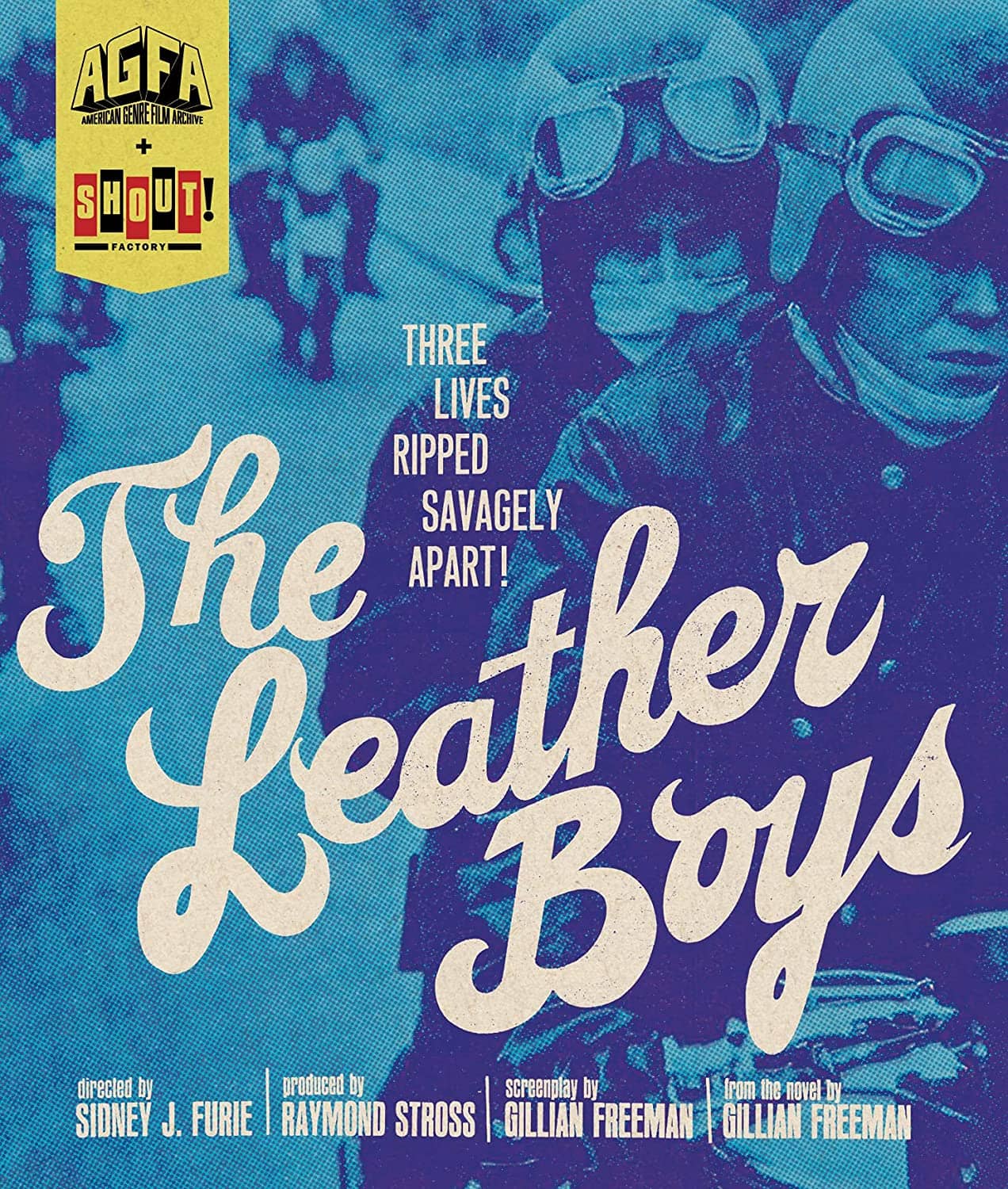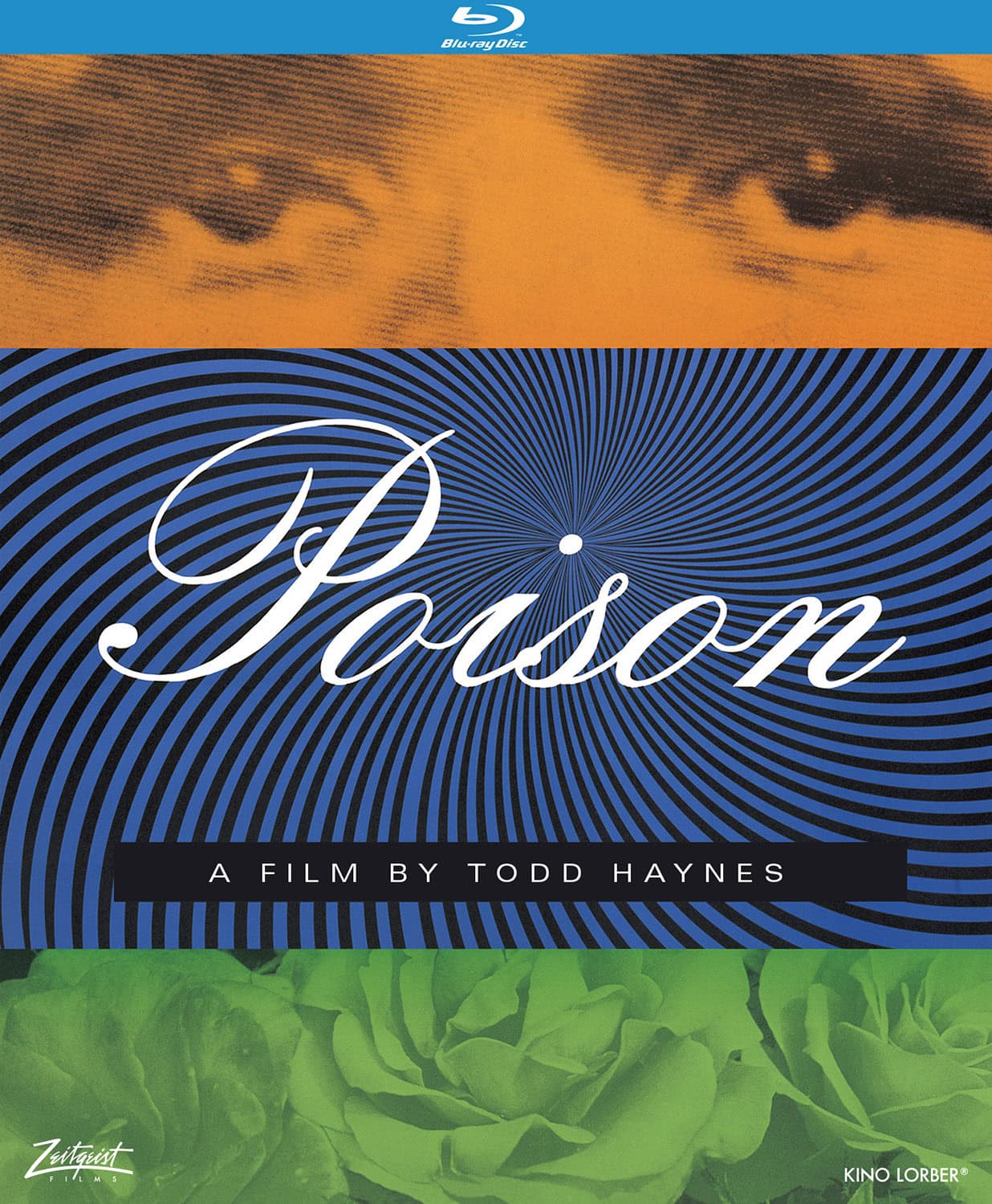 One year before he broke out with The Ipcress File, Sidney J. Furie directed 1964’s The Leather Boys, a film that capitalized on the kitchen-sink realism of the British New Wave. Though helmed by a Canadian expat and released just after the movement had crested, The Leather Boys has endured as a key text in the emergent queer cinema thanks to its latent themes and largely empathetic view of same-sex desire.
One year before he broke out with The Ipcress File, Sidney J. Furie directed 1964’s The Leather Boys, a film that capitalized on the kitchen-sink realism of the British New Wave. Though helmed by a Canadian expat and released just after the movement had crested, The Leather Boys has endured as a key text in the emergent queer cinema thanks to its latent themes and largely empathetic view of same-sex desire.
After biker Reggie (Colin Campbell) and his hair-hopper girlfriend, Dot (Rita Tushingham), tie the knot, they head to a holiday camp for their honeymoon where things go sour in a flash. Yearning to escape the drudgery of his new married life, Reggie becomes fast friends with Pete (Dudley Sutton), a quick-talking fellow leather boy with whom he takes trips to the seaside, much to the chagrin of Dot, who struggles to make their house a home. When Reggie’s grandfather passes away unexpectedly, he asks Pete to join his grandmother (Gladys Henson) as a boarder and live-in companion in her spare room, where he also crashes after he and Dot have a row. Cohabitating with his new roommate, it soon becomes clear that Pete and Reggie have feelings for each other that go beyond mere friendship—feelings that neither of them may be willing or able to process.
The Leather Boys is based on a 1961 novel by Gillian Freeman (written under the pen name Eliot George), who’s also credited as the screenwriter, though large swaths of the film were improvised. The film also does away with nearly all criminal activity and explicit gay content depicted in the book, leaving the drama of its three central characters front and center. This approach largely works, as Campbell, Sutton, and especially Tushingham hold the screen with ferocious, youthful vigor, and Furie (along with cinematographer Gerald Gibbs) supports their efforts with emotive yet quotidian photography of London’s train yards, row houses, and bars. With its working-class focus and heavy use of street slang and improv, viewers will be immediately reminded of Mike Leigh, who, in a fitting coincidence, served as a photographic model for one of the main characters on the first paperback edition of Freeman’s novel.
In terms of gay content, The Leather Boys plays things close to the chest until the third act, when Dot finally spits out the word “queers” and, a while after, Reggie and Pete have a climactic moment in a bar surrounded by leering, effete patrons. This coyness is somewhat surprising, considering Basil Dearden’s landmark 1961 drama Victim—which is often credited with changing many Britons attitudes toward homosexuality—is far more vocally explicit in its messaging and intent. Less surprising, Victim was denied a seal of approval from the American Motion Picture Production Code, but The Leather Boys had no such problem.
There are elements about Furie’s film that rankle (such as the depiction of the gay bargoers), but there’s a tenderness to Reggie and Pete’s relationship that cuts through—the latter filling the bedmate and caretaker role that Dot is so ill-suited for. And though The Leather Boys ends with what in lesser hands would be treated as a moment of horror, Furie allows the shock of recognition to flow, without melodrama, into a bittersweet parting of the ways, with one man laying himself bare and another turning his back on a reality he may never be ready to face.
Image/Sound
Sidney J. Furie’s long-hard-to-find film has received a sparkling new transfer from its original 35mm negative on a region-free Blu-ray disc, co-presented by American Genre Film Archive and Shout! Factory. Cinematographer Gerald Gibb’s wide, single-camera Cinemascope photography practically glimmers in its original 2.35:1 aspect ratio, which Furie himself says is perfectly graded. The crisp, finely textured black-and-white images are rich in detail with nary a speck of dirt, evidence of print damage, or visual noise. The disc comes with an English mono track that, while perfectly serviceable, has its share of moments, especially early on, where dialogue is occasionally lost in the din of the characters’ youthful ruckus.
Extras
This Blu-ray comes outfitted with a few worthwhile special features. Primary among these is an all-new commentary with Furie in conversation with Daniel Kremer, director and author of Sidney J. Furie: Life and Films. It’s a highly detailed and enjoyable track, though occasionally a bit frustrating, as the octogenarian Furie seems more interested in discussing the nuts and bolts of his process than the wider legacy of the film and how it relates to queer cinema as a movement or the British New Wave. Also included are archival audio interviews with stars Rita Tushingham and Dudley Sutton, as well as the 1967 TV documentary Consenting Adults: A Study of Homosexuality from the Something Weird archive, which is interesting enough on its own but doesn’t feel particularly enlightening as supplemental material. Indeed, the package practically aches for a good essay to help put The Leather Boys in its proper context.
Overall
The Leather Boys has endured as a key text in the emergent queer cinema thanks to its latent themes and largely empathetic view of same-sex desire.
Since 2001, we've brought you uncompromising, candid takes on the world of film, music, television, video games, theater, and more. Independently owned and operated publications like Slant have been hit hard in recent years, but we’re committed to keeping our content free and accessible—meaning no paywalls or fees.
If you like what we do, please consider subscribing to our Patreon or making a donation.



